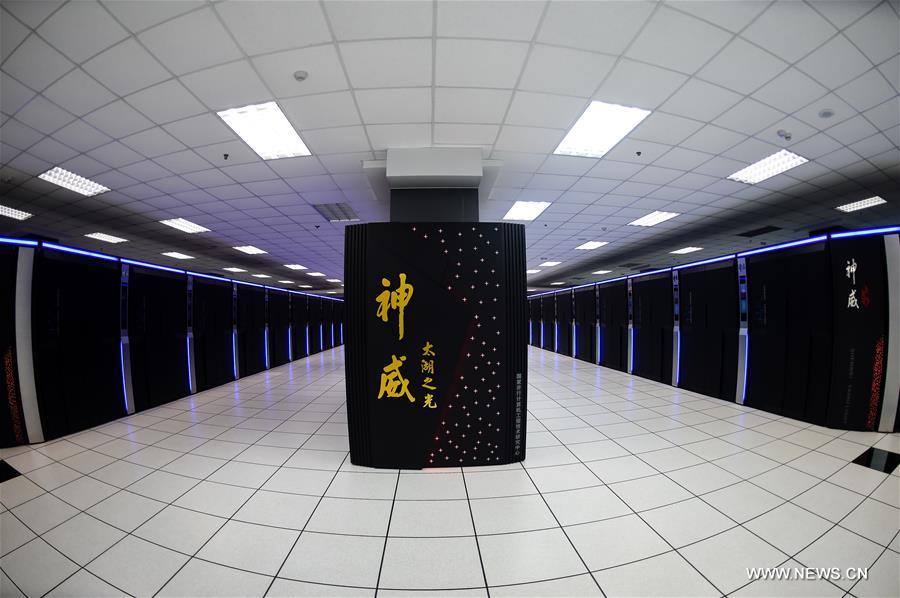China's science academy pumps research into supercomputing
By Cao Yin | China Daily | Updated: 2020-09-17 09:17

Effort is part of second phase of initiative that aims to implement directive from Xi
The Chinese Academy of Sciences said it will strengthen research on supercomputing systems and key materials after seeing great scientific and technological achievements over the past six years.
"Given that China is facing a transformation in science and technology to meet the country's high-quality economic development standards and is dealing with pressure from high-tech companies from the United States, we hope to do more to help solve critical problems in these aspects in the following 10 years," CAS President Bai Chunli said.
He made the remarks at a news conference held by the State Council Information Office on Wednesday, adding the academy will concentrate on supercomputing systems and key material research, such as those on aircraft tires and bearing steel, in the second phase of an effort known as the Pioneering Initiative.
In 2013, President Xi Jinping asked the academy to be a pioneer in making great scientific and technological progress, producing more innovative talent, becoming an influential scientific think tank for China as well as a world-class research institution.
A year later, the Pioneering Initiative, consisting of reforms and plans, was launched to implement Xi's expectations by 2030.
This year marks the end of the first phase of the initiative, "and we've successfully accomplished the goals and tasks of the period, with a large collection of scientific and technological achievements in various industries, including quantum information and condensed matter physics," Bai said.
The achievements, which have played a bigger role in building an innovation-oriented country and a strong nation of science and technology, will be a solid foundation to fully accomplish the initiative, he added.
A statement provided by the CAS on Wednesday said that in the first phase of the initiative, the academy made 59 major scientific and technological achievements as well as landmark progress.
In January, for example, China's Five-hundred-meter Aperture Spherical Telescope, the world's largest single-dish radio telescope, passed national evaluation and officially began operation.
The telescope's superior sensitivity is expected to lead scientists to great scientific breakthroughs in research on astronomical phenomena, including pulsars, hydrogen in the Milky Way and neighboring galaxies, and fast radio bursts.
Considering the ongoing COVID-19 pandemic, Bai also told media that the academy will continue to make more contributions to vaccine research to protect people's health and safety.
After the outbreak hit the country, about 3,000 researchers from the academy devoted themselves to technological prevention and control against the disease, with research on treating patients in critical situations through stem cell technology and remote collection of biological samples, according to Bai.
























